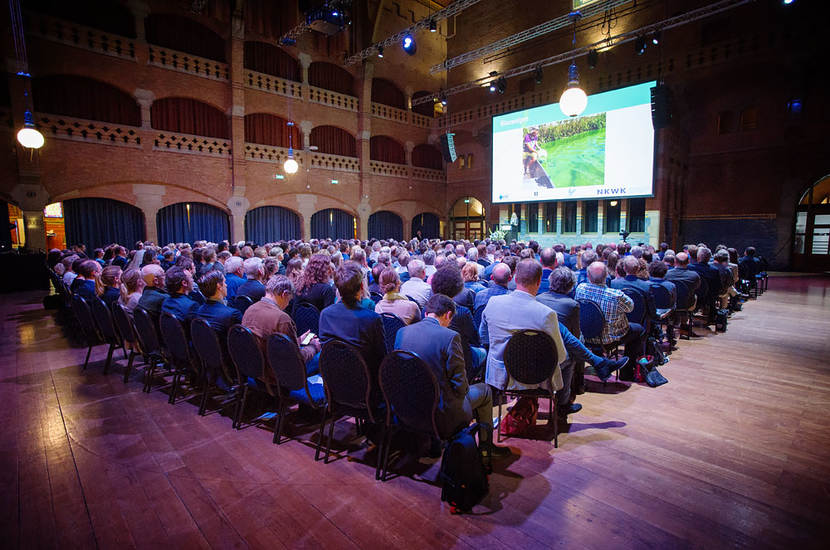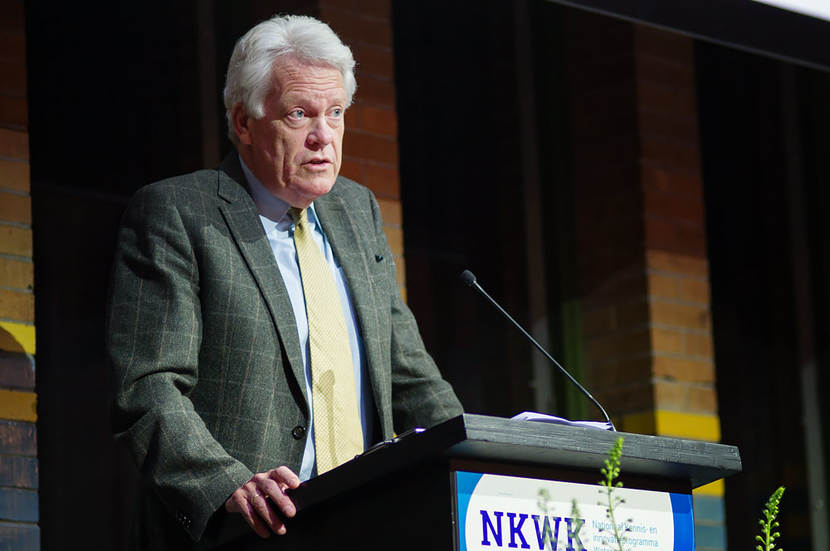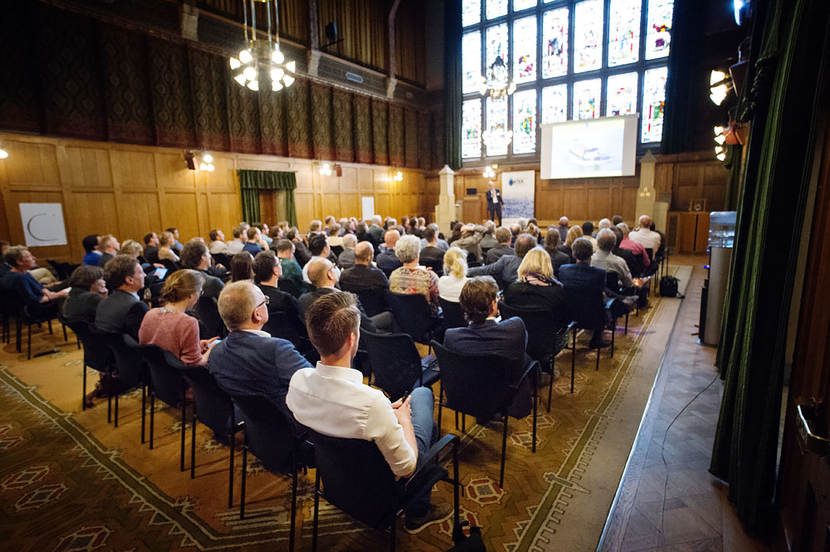New expertise and opportunities at third NKWK conference
Tuesday, 11 April, the Beurs van Berlage in Amsterdam hosted the third conference of the National Water and Climate Knowledge and Innovation Programme (NKWK). The NKWK programme is a joint venture of government bodies, businesses, and knowledge institutes focused on the domains of water, spatial planning, and the climate.

The more than 400 participants exchanged new insights and explored new opportunities for joint research and practical applications. The conference was organised by Amsterdam Water Science (University of Amsterdam and VU University Amsterdam-IVM), the Royal Netherlands Meteorological Institute KNMI, Rijkswaterstaat [the executive agency of the Ministry of Infrastructure and the Environment], and the staff of the Delta Programme Commissioner, assisted by Delft University of Technology, Twente University, and NLengineers [Dutch association of consulting engineers].

During the plenary opening session, the participants were welcomed by day chair and NKWK programme leader Roeland Allewijn. Roald Lapperre (Chair of the NKWK Programme Council) indicated that the NKWK is not a luxury for the Netherlands but rather absolutely essential, that collaboration within the focus areas is gaining momentum now, and that more parties (such as the Ministry of Economic Affairs) are joining. Subsequently, Petra Visser, speaking on behalf of the Board of Amsterdam Water Science (AWS), outlined the research and education programme implemented by AWS. KNMI managing director Gerard van der Steenhoven presented the latest insights regarding climate change, and thus underscored the urgency of the NKWK programme. Next, Frank Goossensen (Top Sector Water) reviewed the opportunities for the business community in terms of international collaboration and export. The National Science Agenda offers, particularly in the so-called Blue Route, opportunities for expansion and intensification of the collaboration between the NKWK programme and other parties, according to Colette Bos (NWA secretariat).
Delta Programme Commissioner Wim Kuijken rounded off the plenary session with the conclusion that the NKWK is really getting off the ground now, and that its shared ownership is starting to bear fruit.

The plenary part of the conference was followed by two rounds of six parallel sessions each, in which the participants entered into debate with one another on new research results, intensifying collaboration, and learning from mutual experience with new forms of collaboration, such as in the form of “living labs”. The focus areas of Rivers, Hydraulic Structures, Coastal Genesis, and Climate-proof Cities are well underway, and other parties are invited to tie in with pilot projects. The focus areas of Water Retention and Models are looking for new connections with, inter alia, disaster management. Specific sessions were devoted to the freshwater supply of the elevated parts of the Netherlands (Lumbricus), soil subsidence in the lower parts of the country, and the acidification or resilience of large bodies of water, while the opportunities for innovation and export were explored in sessions on nature-based solutions and water & energy.
As an indication of the success of the conference, in the final survey 95% of the delegates stated that they would definitely or probably be attending the next NKWK conference.